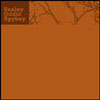 There is a point where sound collages become something else. Dronesstop being merely drones and the cinematic passing of sounds build intoan architecture without shape or form. Christina Sealey, Richard Oddie,and Mark Spybey have consecrated the air about my ears and formedaround it a liquid curtain of sudden memories and vague communicationsfrom the mystical side of dreams. SOSisn't a drone record and it isn't just a collage of sounds, it feelsmore like a movie meant to convey some central ideas. Drowning bells,all-knowing monks, and the enchantment of sirens act as a thematicmarker by which ventures into the unknown take place. The sounds arenever reduced to a pure humming, nor are there any moments where theflooding of sound meshes into an unidentifiable mass. Sounds act asindividual instruments; whether it's the beat of a heart or therotation of blades on an enormous fan, there's always a sense ofgeneral organization between sounds. The group isn't afraid to includefamiliar sounds in their landscape of the strange. Everything fromdistorted radio signals and the cold delivery of a news anchor's voiceto what might be a digeridoo can be found somewhere in the haze ofsonic manipulation. Melodies unfold for small portions of time andrhythm can be picked out of certain pieces, but nothing on SOSrelies on either. I'm incredibly taken by this disc because I find itto be more than impossible to catergorize. Noise, drone, ambient, blah,blah, blah; none of it fits this disc in any way conceivable. Callingit a sound collage ignores the precise way the sequence of tracksplayed with my head and provided at least an illusion of structure andinsight. I wouldn't say this is something drastically new or unique;considering Spybey's long history with sound, I doubt that there aren'tsome familiar themes or ideas at work here, but the entire recordsounds and feels fresh. It deserves and, by way of mystical suggestion,demands repeat listens.
There is a point where sound collages become something else. Dronesstop being merely drones and the cinematic passing of sounds build intoan architecture without shape or form. Christina Sealey, Richard Oddie,and Mark Spybey have consecrated the air about my ears and formedaround it a liquid curtain of sudden memories and vague communicationsfrom the mystical side of dreams. SOSisn't a drone record and it isn't just a collage of sounds, it feelsmore like a movie meant to convey some central ideas. Drowning bells,all-knowing monks, and the enchantment of sirens act as a thematicmarker by which ventures into the unknown take place. The sounds arenever reduced to a pure humming, nor are there any moments where theflooding of sound meshes into an unidentifiable mass. Sounds act asindividual instruments; whether it's the beat of a heart or therotation of blades on an enormous fan, there's always a sense ofgeneral organization between sounds. The group isn't afraid to includefamiliar sounds in their landscape of the strange. Everything fromdistorted radio signals and the cold delivery of a news anchor's voiceto what might be a digeridoo can be found somewhere in the haze ofsonic manipulation. Melodies unfold for small portions of time andrhythm can be picked out of certain pieces, but nothing on SOSrelies on either. I'm incredibly taken by this disc because I find itto be more than impossible to catergorize. Noise, drone, ambient, blah,blah, blah; none of it fits this disc in any way conceivable. Callingit a sound collage ignores the precise way the sequence of tracksplayed with my head and provided at least an illusion of structure andinsight. I wouldn't say this is something drastically new or unique;considering Spybey's long history with sound, I doubt that there aren'tsome familiar themes or ideas at work here, but the entire recordsounds and feels fresh. It deserves and, by way of mystical suggestion,demands repeat listens.
Two new shows just for you. We have squeezed out two extended release episodes for this weekend to get you through this week. They contain mostly new songs but there's also new issues from the vaults. The first show features music from Rider/Horse, Mint Field, Robert Aiki Aubrey Lowe, Anastasia Coope, ISAN, Stone Music, La Securite, Bark Psychosis, Jon Rose, Master Wilburn Burchette, Umberto, Wand, Tim Koh, Sun An, and Memory Drawings. The second episode has music by Laibach, Melt-Banana, Chuck Johnson, X, K. Yoshimatsu, Dorothy Carter, Pavel Milyakov, Violence Gratuite, Mark Templeton, Dummy, Endon, body / negative, Midwife, Alberto Boccardi, Divine. Cow in Maui from Veronika in Vienna. Get involved: subscribe, review, rate, share with your friends, send images! |



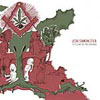 No doubt in response to the reception of last year's Tasheyana Compost, Infrasound has reissued USAISAMONSTER's previous two vinyl releases on a single disc. Anyone pleased with Compost'smuddy conglomerate of duo-blasted noise rock and prog-metal will feelequally at home in the arms of this beast, the lager-soaked pilgrim toits successor's war-weary Cherokee. The slick guitar chops are stillthere, each song still a many-armed mini-epic, but Citizenspreserves every piece of fudged riffage, every rhythmic stumble, andevery indulgent stomp-a-long bit, imbuing each with uncorruptedconviction, a metalhead's glee. It's not that these early releases showthe group in crude or undeveloped form (they are tighter than ever), oreven that their newer full-length represents a "softening" of theirsound; Citizens merely proves that these guys were thrashing tothe SST catalog long before they discovered Hawkwind. The disc offersthe more accurate and more thrilling picture of a band whose reputationhas rightfully developed around a blaring, overblown live event. Theguitars are a little less likely to dip into the angular jazz-istpatterns scattered throughout Compost, preferring close-croppedriffs and assaulting repetition, breakdowns occurring only when thetension and release of the figures buckles under the speed of eachsong. Songs themselves cater less to the wayward theatrics of thesucceeding album, and while some acoustic troubadouring does crop up,these songs (especially those from 2001's Citizens of the Universe)are more like spliced chains of 2-min. thrash anthems, worked togetherwith the occasional staggered metallic breather. I feel comfortablesaying that if Compost was not your air-drums record of the year, this surely will be. For all of its force, Citizens stays fun throughout and should be welcomed by new fans who were dismayed to find the original records unavailable.
No doubt in response to the reception of last year's Tasheyana Compost, Infrasound has reissued USAISAMONSTER's previous two vinyl releases on a single disc. Anyone pleased with Compost'smuddy conglomerate of duo-blasted noise rock and prog-metal will feelequally at home in the arms of this beast, the lager-soaked pilgrim toits successor's war-weary Cherokee. The slick guitar chops are stillthere, each song still a many-armed mini-epic, but Citizenspreserves every piece of fudged riffage, every rhythmic stumble, andevery indulgent stomp-a-long bit, imbuing each with uncorruptedconviction, a metalhead's glee. It's not that these early releases showthe group in crude or undeveloped form (they are tighter than ever), oreven that their newer full-length represents a "softening" of theirsound; Citizens merely proves that these guys were thrashing tothe SST catalog long before they discovered Hawkwind. The disc offersthe more accurate and more thrilling picture of a band whose reputationhas rightfully developed around a blaring, overblown live event. Theguitars are a little less likely to dip into the angular jazz-istpatterns scattered throughout Compost, preferring close-croppedriffs and assaulting repetition, breakdowns occurring only when thetension and release of the figures buckles under the speed of eachsong. Songs themselves cater less to the wayward theatrics of thesucceeding album, and while some acoustic troubadouring does crop up,these songs (especially those from 2001's Citizens of the Universe)are more like spliced chains of 2-min. thrash anthems, worked togetherwith the occasional staggered metallic breather. I feel comfortablesaying that if Compost was not your air-drums record of the year, this surely will be. For all of its force, Citizens stays fun throughout and should be welcomed by new fans who were dismayed to find the original records unavailable. 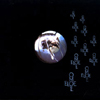 Rising from the brittle crust of the same Northeastern coast thatbirthed labelmates USAISAMONSTER, Eloe Omoe is a duo of considerablyless refinement. While their aesthetic is likely to find support in theRuins/Lightning Bolt camp, the band comes off sounding so elementalthat I worry they have compromised themselves by cutting a record atall. This 12", their first release, contains five live tracks: meresnippets or little windows into what seem less like a few scatteredshows between '99 and '01 than random stops along an un-halting,nomadic traversal of New England, powered by a vaguely primitiveimpulse, unseen, unknown, and nearly lost on these recordings. Themusic is a tumbling, thoroughly abstract mess of effected bass rumble,draped with drum parts that descend, deconstruct, and fall apart toinvisible cues. All five pieces sound improvised, the two playersrarely coming together for anything "thematic" to emerge; the onlyclear indications that they are not playing in different rooms are afew abrupt stops and a unified effort to keep the songs in a kind ofperpetual collapse. The recording is understandably of poor quality,and, while bands like Lightning Bolt and USAISAMONSTER might haverigorous structures or goofy posturing to compensate, Eloe Omoe suffersmore openly. Theirs is really more of a jazzist take on the noise rockgame, and as such, the music's visceral, performative nature becomes alarge part of its appeal, lost on such a recording. Again, fans of agrassroots noise aesthetic will appreciate the record, Sam Rowell'ssqualling bass in particular, though I'd be interested to see how alittle studio tweaking would effect the group's sound, for better orworse.
Rising from the brittle crust of the same Northeastern coast thatbirthed labelmates USAISAMONSTER, Eloe Omoe is a duo of considerablyless refinement. While their aesthetic is likely to find support in theRuins/Lightning Bolt camp, the band comes off sounding so elementalthat I worry they have compromised themselves by cutting a record atall. This 12", their first release, contains five live tracks: meresnippets or little windows into what seem less like a few scatteredshows between '99 and '01 than random stops along an un-halting,nomadic traversal of New England, powered by a vaguely primitiveimpulse, unseen, unknown, and nearly lost on these recordings. Themusic is a tumbling, thoroughly abstract mess of effected bass rumble,draped with drum parts that descend, deconstruct, and fall apart toinvisible cues. All five pieces sound improvised, the two playersrarely coming together for anything "thematic" to emerge; the onlyclear indications that they are not playing in different rooms are afew abrupt stops and a unified effort to keep the songs in a kind ofperpetual collapse. The recording is understandably of poor quality,and, while bands like Lightning Bolt and USAISAMONSTER might haverigorous structures or goofy posturing to compensate, Eloe Omoe suffersmore openly. Theirs is really more of a jazzist take on the noise rockgame, and as such, the music's visceral, performative nature becomes alarge part of its appeal, lost on such a recording. Again, fans of agrassroots noise aesthetic will appreciate the record, Sam Rowell'ssqualling bass in particular, though I'd be interested to see how alittle studio tweaking would effect the group's sound, for better orworse.  A few weeks back, I tried to describe the new Swollen Members disc bycalling it "juvenile", and the word applies to the latest effort byKingston dancehall psychos Ward 21, too, but not in the same way atall: where Swollen Members sound so earnest about their high-schoolpimpin' fantasies that you really have to cringe, the lyrics to a Ward21 song like "Coochie Zone", which shouldbe offensive, end up being balanced off by production and a publicimage so completely off its gourd that you just sort of have to cackleand nod your head to the beat. "But Taylor," my Inner Liberal ArtsMajor chides, "aren't you just belittling the efforts of hardworkingJamaican musicians to keep the world from noticing your microscopicoppressor's wee-wee?" "Shut the hell up, Inner Liberal Arts Major," Ireply, more than a bit self-conscious about how cold it is in here,"These nutcases use the word 'cocky' as a noun about every third track;how seriously do you really think they want to be taken?" My Inner ArtsMajor slinks off to wonder exactly what a "cocky" is, and I spend thenext 70 minutes digging the fact that it's possible to make a dancehallrecord with bagpipe noises, tacky '80s dance-pop riffs, and lyricsabout Michael Jackson's flaming Pepsi hair. Plenty of other, moretraditional sounds are put to use on U Know..., too, and Itired of the constant falsetto squawking of the album's title wheneverthe mix got thin, but the lunatic elements are hard to dislike, andthey're definitely the focus of the group's sound, so until Weenone-ups them by locking themselves in King Jammy's studio and making abrilliant album out of reverb-soaked farting noises, this is going tobe my Crazy Jamaican Album of choice.
A few weeks back, I tried to describe the new Swollen Members disc bycalling it "juvenile", and the word applies to the latest effort byKingston dancehall psychos Ward 21, too, but not in the same way atall: where Swollen Members sound so earnest about their high-schoolpimpin' fantasies that you really have to cringe, the lyrics to a Ward21 song like "Coochie Zone", which shouldbe offensive, end up being balanced off by production and a publicimage so completely off its gourd that you just sort of have to cackleand nod your head to the beat. "But Taylor," my Inner Liberal ArtsMajor chides, "aren't you just belittling the efforts of hardworkingJamaican musicians to keep the world from noticing your microscopicoppressor's wee-wee?" "Shut the hell up, Inner Liberal Arts Major," Ireply, more than a bit self-conscious about how cold it is in here,"These nutcases use the word 'cocky' as a noun about every third track;how seriously do you really think they want to be taken?" My Inner ArtsMajor slinks off to wonder exactly what a "cocky" is, and I spend thenext 70 minutes digging the fact that it's possible to make a dancehallrecord with bagpipe noises, tacky '80s dance-pop riffs, and lyricsabout Michael Jackson's flaming Pepsi hair. Plenty of other, moretraditional sounds are put to use on U Know..., too, and Itired of the constant falsetto squawking of the album's title wheneverthe mix got thin, but the lunatic elements are hard to dislike, andthey're definitely the focus of the group's sound, so until Weenone-ups them by locking themselves in King Jammy's studio and making abrilliant album out of reverb-soaked farting noises, this is going tobe my Crazy Jamaican Album of choice. As the first solo record from any member of Faust, a band heralded as one of the great "collectives" in rock history, LifeLikeis worth the wait not because it offers a glimpse back in time or evena fuller understanding of how Irmler's organ fit the Faustian puzzle.While the trained ear might recognize some of his distorted stabs andflourishes rising from the depths, LifeLike keeps any evidenceof Faust's shambled pastures to a minimum, focusing instead on Irmler'ssprawling textural achievements. He plays organ and keyboard throughmost of the disc, blending gritty, droning waves through slightpassages of clean melodic playing and more impressive flights oferupting noise. To his already beautiful playing, Irmler adds a wealthof field recordings, often perfectly accompanying or mimicking hissynthetic textures. The effect is close to a fusion of the vintageprogressive synth sound of early Tangerine Dream with the morestreamlined collage techniques of today. Pieces of rolling thunder,muffled conversation, city noise, and even tribal chanting add to themystery of these sound vistas but never in a way that is alarming ordisorienting. Everything inches back to Irmler’s comfortable keyboardand treated organ swells, creating music that only becomes absorbing ifallowed. Several motifs are repeated throughout, giving LifeLikea definite cinematic quality, especially recalling old science fictionsoundtracks, something reinforced by the warm gloss coating the record.The occasional hammered pattern or distorted uprising is enough tobring the music back to the surface, but for the most part, LifeLikeserves most effectively as the background to bouts of luciddaydreaming. I feel a smug pleasure that my experience with Irmler’swork runs counter to that of Ralf Bei der Kellen whose indulgent essaymakes up the liner notes to LifeLike. Der Kellen describes themusic as a kind of aural biography that, through the act ofdocumentation, helps listeners to hear ordinary sounds in new ways. Forme, there is nothing so consciousness-grabbing or life-affirming in LifeLike;but, I did not ask for such things. Irmler has made a beautiful,consistent, and highly visual record that will hopefully not be hislast.
As the first solo record from any member of Faust, a band heralded as one of the great "collectives" in rock history, LifeLikeis worth the wait not because it offers a glimpse back in time or evena fuller understanding of how Irmler's organ fit the Faustian puzzle.While the trained ear might recognize some of his distorted stabs andflourishes rising from the depths, LifeLike keeps any evidenceof Faust's shambled pastures to a minimum, focusing instead on Irmler'ssprawling textural achievements. He plays organ and keyboard throughmost of the disc, blending gritty, droning waves through slightpassages of clean melodic playing and more impressive flights oferupting noise. To his already beautiful playing, Irmler adds a wealthof field recordings, often perfectly accompanying or mimicking hissynthetic textures. The effect is close to a fusion of the vintageprogressive synth sound of early Tangerine Dream with the morestreamlined collage techniques of today. Pieces of rolling thunder,muffled conversation, city noise, and even tribal chanting add to themystery of these sound vistas but never in a way that is alarming ordisorienting. Everything inches back to Irmler’s comfortable keyboardand treated organ swells, creating music that only becomes absorbing ifallowed. Several motifs are repeated throughout, giving LifeLikea definite cinematic quality, especially recalling old science fictionsoundtracks, something reinforced by the warm gloss coating the record.The occasional hammered pattern or distorted uprising is enough tobring the music back to the surface, but for the most part, LifeLikeserves most effectively as the background to bouts of luciddaydreaming. I feel a smug pleasure that my experience with Irmler’swork runs counter to that of Ralf Bei der Kellen whose indulgent essaymakes up the liner notes to LifeLike. Der Kellen describes themusic as a kind of aural biography that, through the act ofdocumentation, helps listeners to hear ordinary sounds in new ways. Forme, there is nothing so consciousness-grabbing or life-affirming in LifeLike;but, I did not ask for such things. Irmler has made a beautiful,consistent, and highly visual record that will hopefully not be hislast. There's something to be said for a slow burn in a song: not letting itall go to start with but to let it build slowly, adding kindling orwhatever fuels it to satisfaction, then unleashing the full controlledburn on whatever suits the fancy. For such a young band to havemastered that art as skillfully as Seekonk is amazing, but thisPortland, Maine ensemble has done just that. Formed about a year and ahalf ago, these multi-instrumentalists concoct heavy slow rock thatwaits a perceived eternity before letting loose, and it's aggravatingin that special way. When it does release, this music has the ease of abird taking flight, gliding through the air with efficiency andmajesty. Album opener "Move" fools right away, sounding almost ploddingand lackluster, but when the last third of the song kicks in andvocalist Shana Barry lets loose with "I was born in the sky above," Iget it. "Swim Again" impresses with laboring beat and chiming guitar,while Patrick Corrigan and Dave Noyes blend beautifully with Barry'srasp to create a delicate hypnotism until the hammer falls. ThenBabylon, as all voices sing as one, and the song is a wonderousthunderstorm of noise and melody. Two tracks in and I'm already needinga rest. So one comes in the form of "Hate the Sun," which doesn'texplode with energy like the others even though it is quite pretty. Thealbum slows down a bit, but then picks up again in the middle of "20Degrees" and stretches its legs, trying out some different sounds andtempos. "You Got What Was Coming to You" is perfect scary, and thelyrics are sardonic and dismissive, the climax of the record, beforetwo more relatively solid tracks that hit all the right switches. Onlyone concern: Barry left after recording was completed and has sincebeen replaced by Danielle Hylen. Only the live show will tell for sure,but I hope she can carry these tunes and then some. Otherwise, thisdebut is too amazing a high note to have it wasted away.
There's something to be said for a slow burn in a song: not letting itall go to start with but to let it build slowly, adding kindling orwhatever fuels it to satisfaction, then unleashing the full controlledburn on whatever suits the fancy. For such a young band to havemastered that art as skillfully as Seekonk is amazing, but thisPortland, Maine ensemble has done just that. Formed about a year and ahalf ago, these multi-instrumentalists concoct heavy slow rock thatwaits a perceived eternity before letting loose, and it's aggravatingin that special way. When it does release, this music has the ease of abird taking flight, gliding through the air with efficiency andmajesty. Album opener "Move" fools right away, sounding almost ploddingand lackluster, but when the last third of the song kicks in andvocalist Shana Barry lets loose with "I was born in the sky above," Iget it. "Swim Again" impresses with laboring beat and chiming guitar,while Patrick Corrigan and Dave Noyes blend beautifully with Barry'srasp to create a delicate hypnotism until the hammer falls. ThenBabylon, as all voices sing as one, and the song is a wonderousthunderstorm of noise and melody. Two tracks in and I'm already needinga rest. So one comes in the form of "Hate the Sun," which doesn'texplode with energy like the others even though it is quite pretty. Thealbum slows down a bit, but then picks up again in the middle of "20Degrees" and stretches its legs, trying out some different sounds andtempos. "You Got What Was Coming to You" is perfect scary, and thelyrics are sardonic and dismissive, the climax of the record, beforetwo more relatively solid tracks that hit all the right switches. Onlyone concern: Barry left after recording was completed and has sincebeen replaced by Danielle Hylen. Only the live show will tell for sure,but I hope she can carry these tunes and then some. Otherwise, thisdebut is too amazing a high note to have it wasted away.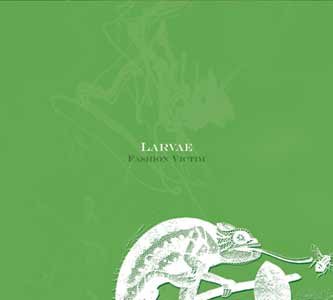 ATTENTION BLUNT SMOKERS AND BASS AFICIONADOS: Put down that spliff and take notice! Larvae has come to warp your minds and clutter your eardrums with some low-frequency sonics. Clocking in at an understated 46 minutes, Fashion Victim, the project's debut album, provides a somewhat noisy take on the bong-worthy dark urban sound (formerly known as illbient) produced by acts like Scorn, DJ Spooky, and Witchman. Taking equal parts Scott Herren and Mick Harris, "Refuse" opens this album with stuttering samples, bold bass tones, and head-nodding drum loops.
ATTENTION BLUNT SMOKERS AND BASS AFICIONADOS: Put down that spliff and take notice! Larvae has come to warp your minds and clutter your eardrums with some low-frequency sonics. Clocking in at an understated 46 minutes, Fashion Victim, the project's debut album, provides a somewhat noisy take on the bong-worthy dark urban sound (formerly known as illbient) produced by acts like Scorn, DJ Spooky, and Witchman. Taking equal parts Scott Herren and Mick Harris, "Refuse" opens this album with stuttering samples, bold bass tones, and head-nodding drum loops.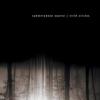 The debut release from this Italian artist is a fine CD of minimal,dark music constructed from electronic drones that is alluringly bleakfrom start to finish. From the beginning I'm transported below thesurface of some bustling city, the distant rumbling and grinding ofmachines and life filtered by miles of rock before it echoes through acavernous chamber. The sense of space is tangible; the sounds are coldand distant, contributing to the overall sense of isolation andloneliness, but the presentation is captivating. Though somewhat gloomyand definitely evocative of shadowy places, these wonderful sounds arefar from stifling. Layers upon layers of audio constantly shift andexpand, the steady wind-like howling becoming far-off wailing andreverberated clatter. In the third track the persistent noises take ona more musical character, with a glistening, almost organ-like tone,and the patient progression, slowly revealing beautiful new elementsonly to put them aside, make this a fascinating piece. "SpiritualDarkness" also features a great looped "melody" hidden underneath therecordings of dripping water and low rumbling. The concluding trackmixes in some tribal-sounding drumming over the drones for a different,but fitting, result. Although I find myself longing for somethinglighter and more open sounding by the album's end, I feel like I'vejust taken part in an amazing experience.
The debut release from this Italian artist is a fine CD of minimal,dark music constructed from electronic drones that is alluringly bleakfrom start to finish. From the beginning I'm transported below thesurface of some bustling city, the distant rumbling and grinding ofmachines and life filtered by miles of rock before it echoes through acavernous chamber. The sense of space is tangible; the sounds are coldand distant, contributing to the overall sense of isolation andloneliness, but the presentation is captivating. Though somewhat gloomyand definitely evocative of shadowy places, these wonderful sounds arefar from stifling. Layers upon layers of audio constantly shift andexpand, the steady wind-like howling becoming far-off wailing andreverberated clatter. In the third track the persistent noises take ona more musical character, with a glistening, almost organ-like tone,and the patient progression, slowly revealing beautiful new elementsonly to put them aside, make this a fascinating piece. "SpiritualDarkness" also features a great looped "melody" hidden underneath therecordings of dripping water and low rumbling. The concluding trackmixes in some tribal-sounding drumming over the drones for a different,but fitting, result. Although I find myself longing for somethinglighter and more open sounding by the album's end, I feel like I'vejust taken part in an amazing experience. From meager beginnings can emerge potentially fantastic results. Assuch, Gridlock started out rather simply as a Skinny Puppy-influencedindustrial band, releasing their first album The Synthetic Formon the now defunct Pendragon label. Since that debut, however, the duoof Wells and Cadoo have moved their sound further and further away fromthat scene as well as that style. While never giving up an appreciationfor crunchy distorted drumwork, Gridlock has definately progressed fromthe inherent ugliness of that former sound, as displayed here on Formless,their most beautiful album to date. Many times a reviewer will throwthat term around carelessly (beautiful), but I'm not fucking aroundhere. The tracks that make up this album are lovingly unearthed bits ofoverdriven percussion fragments and processed digital signals from theland that Autechre forgot. Anyone who recalls the days when thataforementioned British duo were still creating marvelous musical worksof note (Incunabula and Amber, for example) will appreciate the damaged textures found on Formless(Check out the junkyard sonics of the opener "Pallid," or"Chronometaphor" for example.) Going further, "Displacement" borders onthe tribal, with its ritualistic rhythms supporting the contrastingcascades of violence and melody. A standout among the bunch, "Return"begins with fractured rhythms taking a subtle backseat to entrancingambient glimmers for the first two minutes, before a booming bass drumblasts through in true Gridlock sneak-attack fashion. On top of that,the inclusion of some breathy female vocals proved to be the realsurprise here, making a brief appearance as more of an instrument thana true human element. Recognizing that the end is near, Atomontageexudes desparation by crackling, beeping, roaring, and, inevitably,whimpering its way towards the inevitable closer, the lengthy and aptlynamed "Done Processing." Like most of Gridlock's albums, this oneproves difficult to interpret and enjoy if heard as individual songsinstead of as the urban apocalyptic soundtrack it really is. Equallydevastating and uplifting, Formless offers up a proposed future for post-industrial and experimental electronic music that demands to be heard.
From meager beginnings can emerge potentially fantastic results. Assuch, Gridlock started out rather simply as a Skinny Puppy-influencedindustrial band, releasing their first album The Synthetic Formon the now defunct Pendragon label. Since that debut, however, the duoof Wells and Cadoo have moved their sound further and further away fromthat scene as well as that style. While never giving up an appreciationfor crunchy distorted drumwork, Gridlock has definately progressed fromthe inherent ugliness of that former sound, as displayed here on Formless,their most beautiful album to date. Many times a reviewer will throwthat term around carelessly (beautiful), but I'm not fucking aroundhere. The tracks that make up this album are lovingly unearthed bits ofoverdriven percussion fragments and processed digital signals from theland that Autechre forgot. Anyone who recalls the days when thataforementioned British duo were still creating marvelous musical worksof note (Incunabula and Amber, for example) will appreciate the damaged textures found on Formless(Check out the junkyard sonics of the opener "Pallid," or"Chronometaphor" for example.) Going further, "Displacement" borders onthe tribal, with its ritualistic rhythms supporting the contrastingcascades of violence and melody. A standout among the bunch, "Return"begins with fractured rhythms taking a subtle backseat to entrancingambient glimmers for the first two minutes, before a booming bass drumblasts through in true Gridlock sneak-attack fashion. On top of that,the inclusion of some breathy female vocals proved to be the realsurprise here, making a brief appearance as more of an instrument thana true human element. Recognizing that the end is near, Atomontageexudes desparation by crackling, beeping, roaring, and, inevitably,whimpering its way towards the inevitable closer, the lengthy and aptlynamed "Done Processing." Like most of Gridlock's albums, this oneproves difficult to interpret and enjoy if heard as individual songsinstead of as the urban apocalyptic soundtrack it really is. Equallydevastating and uplifting, Formless offers up a proposed future for post-industrial and experimental electronic music that demands to be heard.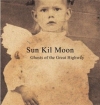 I've got to wonder sometimes why Mark Kozelek still tries at all.Always the bridesmaid and never the bride, his critically acclaimedalbums with Red House Painters never quite hit the commercial glorythat was almost guaranteed with that kind of press. Relegated to indiedarling, he's had quite his issues with record labels, but stillcontinued to churn out album after album of heartfelt and memorablesongs that leave an indelible mark felt long after the record isfinished playing through the speakers. After the turmoil surroundingthe release of Old RamonI would expect anyone to hang it up, or at least take some time offfrom it all. Perhaps that's what Sun Kil Moon is: Kozelek's hanging upof the Red House Painters for good or time off. Either way, theaesthetic has not changed much and that's fine by me. This debutrelease by the band is a phoenix rising from the ashes, proclaiming areign of glory that has potential to last eons. "Glenn Tipton" is acontinuation of the familiar acoustic Painters sound, with fancifullyrics about Sonny Lister and old movies. When the bass kicks in thewhole thing just gets lovely, evoking a gentle bouncing sway from eventhe tightest individual. Then the lyrics turn dark, about buryingvictims and digging through their pockets, but the performance is stillso honest and bear that the heart reaches out anyway, like when peoplesend love letters to prisoners. "Carry Me Ohio" is the same level ofstunning, a tale of not being able to love someone back and theemptiness that can sometimes come as a result, and Kozelek just shineson "Last Tide" and "Floating," which bleed together effortlessly.There's crunch, too, in "Lily and Parrots" and "Salvador Sanchez," alldistortion in guitar and vocals that could never detract. The epic "DukKoo Kim" is the album's keynote address, though, which some may haveheard but not in this fourteen-minute incarnation that buries itself ineffects and changes and some gorgeous guitar work mixed in withmandolin and xylophones. With every record, Kozelek seems to get moreand more mired in his own psyche, exploring different synapses andpockets of memories to dredge up just the right mixture. "PanchoVilla," an acoustic revisiting of "Salvador Sanchez," shows thisexploration and experimentation wonderfully, as the meaning of the songcompleting changes with the new presentation and vocal inflection. Thisranks up there as my favorite record of Kozelek's, surpassing anyPainters work, and it's for this reason that I hope Sun Kil Moon sticksaround for awhile, even if just for a few tracks here and there. It'sbeen worth the wait.
I've got to wonder sometimes why Mark Kozelek still tries at all.Always the bridesmaid and never the bride, his critically acclaimedalbums with Red House Painters never quite hit the commercial glorythat was almost guaranteed with that kind of press. Relegated to indiedarling, he's had quite his issues with record labels, but stillcontinued to churn out album after album of heartfelt and memorablesongs that leave an indelible mark felt long after the record isfinished playing through the speakers. After the turmoil surroundingthe release of Old RamonI would expect anyone to hang it up, or at least take some time offfrom it all. Perhaps that's what Sun Kil Moon is: Kozelek's hanging upof the Red House Painters for good or time off. Either way, theaesthetic has not changed much and that's fine by me. This debutrelease by the band is a phoenix rising from the ashes, proclaiming areign of glory that has potential to last eons. "Glenn Tipton" is acontinuation of the familiar acoustic Painters sound, with fancifullyrics about Sonny Lister and old movies. When the bass kicks in thewhole thing just gets lovely, evoking a gentle bouncing sway from eventhe tightest individual. Then the lyrics turn dark, about buryingvictims and digging through their pockets, but the performance is stillso honest and bear that the heart reaches out anyway, like when peoplesend love letters to prisoners. "Carry Me Ohio" is the same level ofstunning, a tale of not being able to love someone back and theemptiness that can sometimes come as a result, and Kozelek just shineson "Last Tide" and "Floating," which bleed together effortlessly.There's crunch, too, in "Lily and Parrots" and "Salvador Sanchez," alldistortion in guitar and vocals that could never detract. The epic "DukKoo Kim" is the album's keynote address, though, which some may haveheard but not in this fourteen-minute incarnation that buries itself ineffects and changes and some gorgeous guitar work mixed in withmandolin and xylophones. With every record, Kozelek seems to get moreand more mired in his own psyche, exploring different synapses andpockets of memories to dredge up just the right mixture. "PanchoVilla," an acoustic revisiting of "Salvador Sanchez," shows thisexploration and experimentation wonderfully, as the meaning of the songcompleting changes with the new presentation and vocal inflection. Thisranks up there as my favorite record of Kozelek's, surpassing anyPainters work, and it's for this reason that I hope Sun Kil Moon sticksaround for awhile, even if just for a few tracks here and there. It'sbeen worth the wait.
